Diggerworks is undertaking a feasibility study to determine the potential utility of a passive exoskeleton for ADF dismounted close combatants. The intended purpose of the systems is to transfer the weight burden of the soldiers’ carried equipment directly to the ground, helping the dismounted soldier arrive at their destination less fatigued and ready for battle.
As part of the exoskeleton trial, participants were fitted with a surrogate suit made of 3D printed plastic. The surrogate suit was fitted to ensure measurements were correct prior to manufacturing titanium suits.
This looks to be the Mawashi UPRISE Tactical Exoskeleton we recently covered.
© Commonwealth of Australia, Department of Defence, Photo: CAPT Brendan Gilbert
Tags: Australia


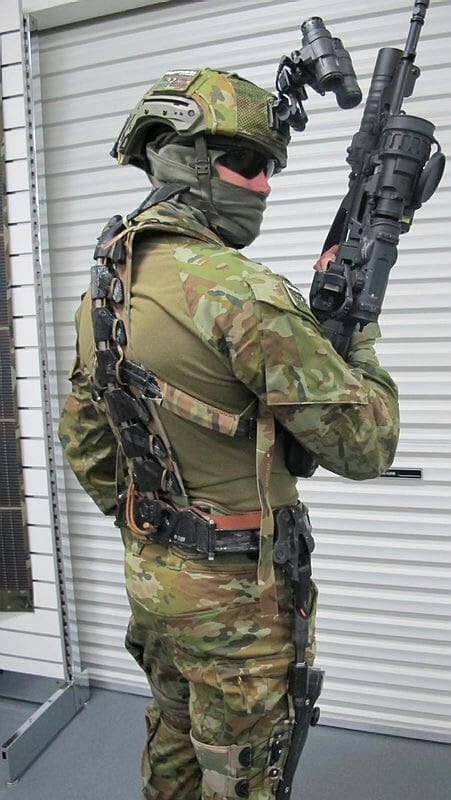
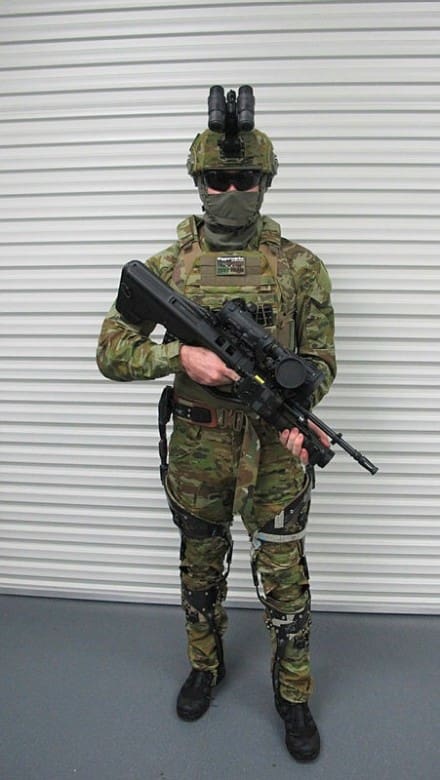
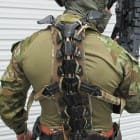
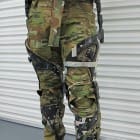
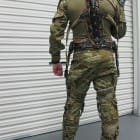
I’m curious as to how this fits with the back plate of an armor carrier. The pictures of this and the Mawashi UPRISE both have a frontal shot with of a guy in a plate carrier with the exoskeleton, but not the a shot from behind with both equipped.
It works, the carrier goes on over the Exoskeleton. In fact, it’s going to give you a bit of standoff and in the armor business, airgaps are good news.
Cmon that would be terrible to wear under a plate carrier
Why?
Not if you integrate the plate carrier into the exoskeleton so as to lighten the load on the body.
As someone who has damaged knees from thirty years of caring packs, this is going in the right direction. I still want to see lighter gear, radios, batteries, ammunition BA.
“Fight Light” only goes so far, sometimes you have to take the kitchen sink along to get the job done.
I am most likely in error here but I see this as a prep to expand weight and not decrease it. Why would you need to create something to help a soldier carry “less” weight if a second goal is to develop gear with less weight? In other words, if gear is made that decreases overall carry weight then why make an exoskelton to help manage that lesser weight?
I understand the concept of weight transfer, much like how one would pack a backpack. You want weight to be distributed properly so it does not throw you off balance and cause early fatigue but I still feel this is a way for those in charge to have soldiers and Marines pack on even more gear.
The problem that I am seeing, is while the weight of individual items is decreasing, the quantity of items being carried is increasing. With that in mind, I do not think we will stop seeing efforts to decrease weight of individual items, because that will continue to allow for the quantity of items to be increased for the normal soldier’s load.
Additionally, no matter how light or heavy your load is, this should help with long range foot movements, which means you will be less fatigued while assaulting, and that is a win in my book.
Ever heard of barefoot walking / running and the barefoot shoes? Do you knees/hip/back a favor and google it. I do it since 4 years and ever since my missangled feed already got self stabilize. Greets
I want those cryes…. are those Australian cryes?!
Is the purpose of this exo suit to help carry that abomination of a rifle?
Shotties are good mate…
Army: Make the Rifle lighter
Defence: Here it is, one kilo lighter than before
Army: Now we can add more stuff to the Rifle and it will not weigh any more than the L1A1 SLR used to
Defence: …
How do these systems work when the soldier is prone or crawling? What is it like to take a knee with one on?
I’m one of the biggest proponents for this technology.
But if we can’t even get the ergonomics for a simple pack and combat ensemble right, how are we going to step up to power armour?